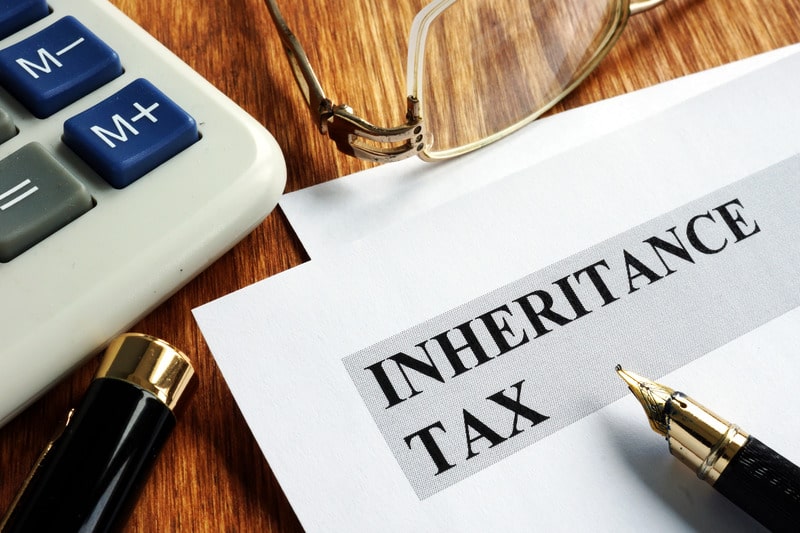
One of the best parts of living in the Lone Star State is its low tax burden. In fact, Texas had the 4th lowest state-local tax burden in the country as of 2022. A major reason for this is that Texas has no state-wide tax on personal income, and it also doesn’t have a state-wide estate tax—something that makes many native Texans breathe a sigh of relief.
But even though there’s no estate tax in Texas, you or a family member still might have federal estate tax liability.
For that reason, it’s a good idea to understand the big picture when it comes to estate taxes.
It’s also helpful to know the difference between estate taxes, property taxes, and inheritance taxes.
In this guide, we’ll run over the basics of these kinds of taxes and how they might apply to you.
If you want to learn more about this topic or have questions, contact our outstanding team of Texas estate planning attorneys online or call 512-410-0343 today.
What Is Estate Tax?
Estate tax is, according to the IRS’s definition, “a tax on your right to transfer property at your death.”
When a person dies, the federal government assesses the total value of all their assets. They then claim a certain percentage of the total assets.
Because it is imposed around the time of a person’s death, the estate tax is one of the two major taxes that people often refer to as a “death tax.”
Besides the federal government, several states require their residents to pay estate taxes.
Texas does not impose an estate tax, inheritance tax, or state-level gift tax. Residents only need to address federal gift taxes and exemptions.
There’s more good news. Most Americans will never have to pay a dime in estate tax because the federal government exempts all estates worth less than roughly $12 million from its estate tax.
However, any “taxable estate” value over $12 million will be taxed at the rate of 40%.
See what our clients have to say about our services:
What Is An Example of Estate Tax?
To determine your estate tax liability, you will need to calculate the value of your gross estate. Your gross estate is the total value of everything you own at the time of your death.
You will then subtract certain transactions from that gross total to arrive at the value of your net estate for estate tax purposes.
Imagine that someone died in December 2022 with a gross estate worth $5 million.
After their death, their accountant does the math, and allowable debts, expenses, and other deductions total $500,000. That means their net estate is worth $4.5 million.
Once the net estate value is calculated, the estate tax exemption amount is subtracted from that value to arrive at their taxable estate.
As of 2022, the estate tax exemption is $12,060,000, and in 2023 that will rise to $12,920,000.
Let’s assume this person didn’t make any taxable gifts during their lifetime that exceeded the annual exemption amounts.
The net estate of $4,500,000 minus the $12,060,000 estate tax exemption equals a -$7,560,000 taxable estate.
Because the estate tax exemption is $7.56 million more than the value of their estate, no tax will be due on their estate.
Potential Ways to Reduce Federal Estate Tax Liability
While not a problem for most Americans, some citizens will have family members with an estate that’s worth more than $12 million.
If a person falls into this category, there are a few ways they can reduce their federal estate tax.
Specifically, they can:
- Spend their assets until the value of their estate is less than $12 million;
- Donate some assets to a qualified charity and claim a tax deduction;
- Relocate to another country to enjoy a more favorable tax climate; or
- Give some of their assets to family and friends prior to their death.
The effectiveness of these strategies depends in large part on each person’s circumstances.
A capable and knowledgeable attorney will be able to apply Texas and federal law to their client’s unique situation to achieve the best possible outcome.
Inheritance Taxes in Texas

Texas does not impose an inheritance or estate tax. An inheritance tax is a tax beneficiaries must pay on what they inherit, while an estate tax is paid by the deceased’s estate on its total assets, including cash, property, and accounts.
People are often confused by the differences between estate tax vs. inheritance tax. We will explain a few of the major differences.
What’s The Difference Between Estate Tax and Inheritance Tax?
There are two major differences between inheritance taxes and estate taxes.
One of the biggest differences between estate tax and inheritance tax is that only states collect inheritance taxes. There is no inheritance tax at the federal level.
Second, inheritance tax is collected (as the name suggests) from the person who inherits the property of a recently deceased person.
By comparison, estate taxes are collected from the deceased person’s property before it is distributed to any heirs or benefactors.
Although Texas used to have an inheritance tax, it was abolished on September 1, 2015.
Inheritance tax is no longer an issue for Texas beneficiaries.
However, if you are a resident in another state inheriting under a Texas will or from a Texas decedent, be sure to check with an experienced estate planning lawyer in your own state to ensure you know the most up-to-date rules for your situation.
Texas Inheritance Tax and Gift Tax
There is also no inheritance tax in Texas. However other states’ inheritance taxes may apply to you if a loved one who lives in those states gives you money, so make sure to check that state’s laws.
Do I Have to Pay an Inheritance Tax in Texas?
There is no inheritance tax in Texas. You may have to pay federal estate taxes, but not state inheritance taxes. Texas is one of a handful of states that does not have an inheritance tax.
You will not need to worry about an inheritance tax allowance on your state or federal tax returns, as you might in some other states.
Is Real Estate Tax the Same as Property Tax?
It depends. There are actually two major kinds of property taxes: personal property taxes and real property taxes.
To understand what these two taxes are, we need to understand what “personal property” and “real property” are.
Texas law defines “real property” as any of the following:
- A parcel of land;
- A building, structure, or other improvement constructed on a piece of land;
- Standing timber or mineral deposits; or
- An estate or interest.
On the other hand, personal property is anything that a person can own that isn’t real property. Examples include personal possessions, boats, cars, and valuables.
Therefore, real “property tax” is just another name for real estate tax. But personal property tax is a completely different kind of tax.
Compared to other states, Texas has a fairly high property tax. However, the Texas state government does not collect property taxes.
Instead, individual counties collect property taxes. You can view your county’s property tax rate here.
Some Texas counties also collect personal property taxes.
Want Legal Guidance When It Comes To Texas Estate? Our Estate Planning Lawyers Can Help You Preserve Your Legacy
Here at Massingill, we’re dedicated to helping our clients leave a legacy that they can be proud of.
We are dedicated to helping you create an estate plan that maximizes tax efficiencies and minimizes hassles to your family.
With our experienced team of Texas estate planning attorneys, we can apply the law to your situation and provide you with quality advice on how you can protect your assets and your family.
Whatever your particular estate planning needs are, we can give you a hand. Don’t wait.
Give our office a call today at 512-410-0343 or book a consultation online. We look forward to working with you!
Where You Can Find Our Austin, Texas Office


